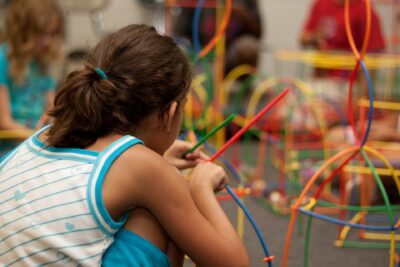 The digital revolution has transformed how we access information and connect with the world. While technology offers incredible educational opportunities, there’s something irreplaceable about real-world experiences. It’s crucial to balance screen time with real-world learning experiences.
The digital revolution has transformed how we access information and connect with the world. While technology offers incredible educational opportunities, there’s something irreplaceable about real-world experiences. It’s crucial to balance screen time with real-world learning experiences.
Here’s why stepping outside the digital realm and into the physical world is crucial for teen development:
Learning by Doing: Textbooks and simulations can only go so far. Real-world experiences provide a hands-on approach that consolidates knowledge. Whether it’s building a robot in STEM class or volunteering at an animal shelter, teens develop practical skills and gain a deeper understanding of concepts.
Social and Emotional Growth: The digital world can feel isolating. Face-to-face interaction in real-world settings fosters communication, empathy and teamwork skills. From collaborating on a science project to participating in a sports team, teens learn to navigate social dynamics and build meaningful relationships. Face-to-face interactions in clubs, sports teams, or community projects teach teens communication, collaboration, and problem-solving. They learn to navigate social cues, build trust, and work effectively with others – skills that are vital for future success.
Problem-Solving Prowess: Real-world scenarios are messy and unpredictable – unlike the controlled environments of digital games or apps. Real-world experiences encourage creative problem-solving and critical thinking. Whether it’s navigating a new city, fixing a broken bike, or collaborating on a science project, teens learn to think outside the box and find solutions on their own.
Boosting Confidence: There’s a sense of accomplishment that comes from mastering a physical skill or overcoming a real-world challenge. Whether it’s conquering a fear of heights during a rock climbing session or delivering a presentation in class, these experiences build confidence and self-esteem in teens. Even developing a new skill in a pottery class, successfully leading a school debate, or overcoming stage fright during a play performance, real-world experiences provide opportunities for teens to build confidence in their abilities.
Connecting with the World: The digital world can create a distorted view of reality. Immersing themselves in real-world experiences allows teens to connect with their communities, understand diverse perspectives and appreciate the world around them. From volunteering at a local soup kitchen to travelling to a new country, they gain a broader worldview and develop a sense of social responsibility.
Preparing for the Future: The world is constantly changing and the skills needed for success are evolving too. Real-world learning equips teens with the adaptability, resilience and critical thinking skills they need to navigate an uncertain future. They will be better prepared for the unexpected challenges life throws their way.
So, how can you introduce real-world learning? Look for opportunities in your community – volunteer programs, after-school clubs, or even simply encouraging teens to explore their hobbies. Talk to teachers about incorporating project-based learning into the classroom. Remember, the most important thing is to spark curiosity and create a space for teens to experience the world beyond textbooks.
The benefits will last a lifetime.
